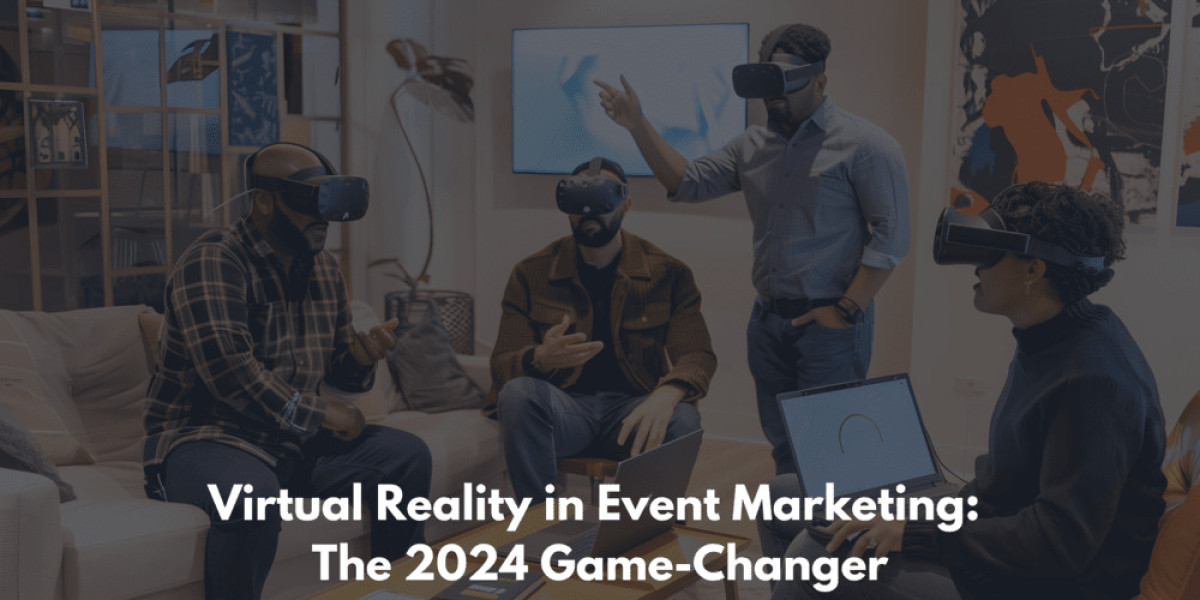In the dynamic world of marketing, innovation is the key to staying ahead. As we navigate through 2024, Virtual Reality (VR) is emerging as a transformative tool in event marketing, reshaping how brands engage with their audiences. Integrating VR into event marketing strategies is not just a trend; it's a game-changer that promises to revolutionize the industry. This blog explores how VR is making waves in event marketing and highlights the importance of leveraging other cutting-edge trends like email marketing and martech to create a holistic, future-proof strategy.
The Rise of Virtual Reality in Event Marketing
Virtual Reality, once a niche technology reserved for gaming and entertainment, has found a significant place in event marketing. The immersive nature of VR allows marketers to create unforgettable experiences, transporting attendees to virtual worlds where they can interact with products, services, and brands in entirely new ways.
Enhancing Engagement and Interaction
One of the most significant advantages of VR in event marketing is its ability to enhance engagement and interaction. Traditional events often struggle to capture and maintain attendee attention. In contrast, VR events immerse participants in interactive environments that demand active participation. For instance, VR can be used to create virtual trade show booths where attendees can explore products, watch demonstrations, and even interact with company representatives, all from the comfort of their homes.
Expanding Reach and Accessibility
VR also breaks down geographical barriers, making events accessible to a global audience. This expanded reach is particularly crucial in a post-pandemic world, where travel restrictions and health concerns may limit physical attendance. By hosting virtual events, brands can connect with a diverse and widespread audience, increasing their visibility and impact. Moreover, VR allows for the creation of on-demand content, enabling attendees to experience the event at their convenience, further enhancing accessibility.
Data-Driven Insights
Another critical benefit of incorporating VR into event marketing is the wealth of data it generates. Through VR platforms, marketers can track attendee interactions in real-time, gathering valuable insights into user behavior, preferences, and engagement levels. This data can be analyzed to refine marketing strategies, optimize content, and improve future events. In this context, integrating martech solutions becomes essential. Martech, or marketing technology, encompasses a range of tools and software that help marketers analyze data, automate processes, and personalize experiences, making it a perfect companion to VR-driven event marketing.
Integrating Email Marketing Trends with VR
While VR is revolutionizing event marketing, it's essential not to overlook the power of email marketing. Recent email marketing trends highlight the importance of personalization, interactivity, and automation—all of which can complement VR efforts.
Personalized Invitations and Follow-Ups
Email marketing is an effective way to personalize event invitations and follow-ups. By leveraging data collected from previous interactions, brands can tailor their messages to individual preferences, increasing the likelihood of attendance. Personalized emails can include interactive elements such as VR previews or links to virtual event platforms, creating a seamless and engaging user experience.
Interactive Content and Gamification
Interactive content is a growing trend in email marketing, and it pairs well with VR. Brands can use emails to share VR teasers, interactive event schedules, or gamified content that encourages recipients to participate. For instance, an email could include a mini VR game related to the event theme, sparking curiosity and driving engagement.
Automation for Seamless Communication
Automation is another key trend in email marketing that can enhance VR event strategies. Automated email sequences can guide attendees through the registration process, provide reminders, and deliver post-event content. This ensures consistent and timely communication, enhancing the overall attendee experience. Martech tools play a crucial role in this process, enabling marketers to set up automated workflows that integrate seamlessly with VR event platforms.
Leveraging Tech Publications for Greater Visibility
To maximize the impact of VR in event marketing, it's important to stay informed about the latest technological advancements and industry trends. Subscribing to tech publications is an excellent way to keep up-to-date with new developments, best practices, and case studies. These resources provide valuable insights that can inform and inspire your VR event strategies.
Staying Ahead of the Curve
Tech publications often feature articles on emerging technologies, including VR, AI, and martech. By regularly reading these publications, marketers can stay ahead of the curve, identifying new opportunities and innovations to incorporate into their strategies. This proactive approach ensures that your event marketing efforts remain cutting-edge and competitive.
Learning from Industry Leaders
Tech publications also highlight success stories and lessons learned from industry leaders. These case studies offer practical insights into how other brands are leveraging VR and other technologies to achieve their marketing goals. By learning from these examples, you can refine your strategies and avoid common pitfalls.
Conclusion
Virtual Reality is undeniably a game-changer in event marketing for 2024. Its ability to create immersive, engaging, and accessible experiences sets it apart as a powerful tool for brands looking to make a lasting impression. However, to fully harness the potential of VR, it's essential to integrate other marketing trends, such as email marketing and martech solutions, into your strategy. By staying informed through tech publications and continuously innovating, you can ensure that your event marketing efforts remain effective, relevant, and impactful in this ever-evolving landscape.
Incorporating VR into your event marketing strategy is not just about keeping up with the latest trend—it's about embracing a transformative technology that has the power to reshape the industry. As we move forward in 2024, those who leverage VR, email marketing trends, and martech effectively will undoubtedly stand out in the crowded marketplace, creating memorable experiences that resonate with audiences long after the event has ended.



